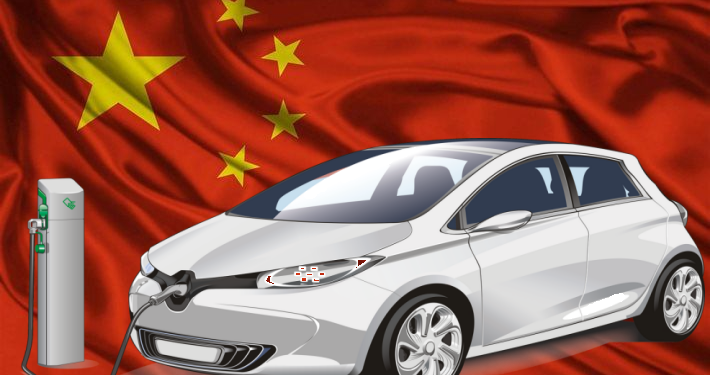Brussels – EU duties on Chinese electric car imports are neither rejected nor approved by the twenty-seven member countries and, therefore, can go ahead. The gist is in the procedure, which, yes, is form, but it is also substance. In the vote held today (Friday, Oct. 4, 2024) in the Trade Defense Committee, the Union countries broke into three groups—the largest of which was the abstention group, 12, compared to 10 in favour and 5 against—without reaching any qualified majority. Under the rules, the dossier is now fully in the hands of the European executive, which has already explained that it sees in the countries’ vote “the necessary support for the adoption of the tariffs,” but in parallel to continue “working hard” with Beijing “to explore an alternative solution that should be fully compatible with the World Trade Organization, adequate to address the injurious subsidies established by the Commission’s investigation, monitorable and enforceable.” Time to find it, however, is running out since “a Commission implementing regulation including the final findings of the investigation must be published in the Official Journal by October 30, 2024.”
The scenarios that could have occurred were four, according to comitology rules (a set of procedures, including representative committee meetings, by which EU countries can express their opinion on implementing acts adopted by the Commission, ed.). The first is a qualified majority of member states (equal to 55 per cent of the countries, thus 15 out of 27, representing 65 per cent of the European population) in favour of the Commission’s proposed regulation. The second, a qualified majority against: the text would have been rejected, and the Commission could have either submitted a new proposed regulation within two months or resubmitted the same text, within one month, to the appeal committee where, however, only a qualified majority could have rejected it, while in all other cases, the Commission could have proceeded with adoption. The third scenario is what occurred: no qualified majority was recorded, either for or against, and the Commission can now go ahead and implement the regulation. The fourth and final scenario would have occurred if there had been a simple majority of 14 member states against the proposal: in this case, the Commission would have been obliged to go to the appeal committee within 30 days, where, to reject it, a qualified majority would have been required otherwise the Commission could still proceed.
So, although all the conclusions would have made rejection more complex than adoption, in fact, today, the one that least compromises the member states materialized, even if it shows them split and perhaps afraid in the face of Beijing and throws the ball back into the Commission’s court. A seemingly pilatesque attitude that shows the uncertainty of the EU states for the actions to be taken in the face of the Chinese challenge and “their concern about a possible deterioration of trade and economic cooperation” with the Asian country—as some Slovak diplomatic sources pointed out to Eunews—”in case the EU applies tariffs on imports of electric vehicles from China, but also in case China takes any retaliatory measures in this regard.”
In the end, Italy, France, Poland, the Netherlands, Ireland, Bulgaria, Denmark, Estonia, Lithuania, and Latvia reportedly voted in favour. Belgium, Czech Republic, Finland, Greece, Spain, Croatia, Cyprus, Luxembourg, Austria, Portugal, Romania and Sweden abstained. Against: Germany, Hungary, Malta, Slovenia, and Slovakia. And while on one side there is Rome, which has always expressed support for the tariffs proposed by the Berlaymont Palace while hoping for a negotiated solution, on the other, there is Berlin, with Finance Minister Christian Lindner calling tariffs on Chinese electric cars “wrong” within hours of the meeting and pointing out that “only losers try trade wars” and, immediately afterwards, called for the need for “a negotiated solution” because the European Commission of Germany’s Ursula von der Leyen “should not start a trade war despite voting in favour of possible punitive tariffs against China.”
A conclusion, this, to which the European Commission itself seems to be looking, and, through its spokesman in charge of Trade and Agriculture, Olof Gill, explained that it “never intended to impose tariffs just to do so, but to remove the harmful effect of the harmful subsidies that the investigation identified” and to be “open to finding a solution” by pursuing negotiations “in good faith and a constructive manner with Chinese counterparts.” Also the Chinese Chamber of Commerce to the EU sis peaking of prioritizing dialogue and, on the one hand, expresses “deep disappointment” over the vote and on the other, “strongly encourages the EU to approach the final measures with caution, delay the implementation of these tariffs, and prioritize the resolution of trade disputes and tensions through consultations and dialogue.” While ACEA, an association of European car manufacturers, “expects the regulation imposing the anti-subsidy measures to be published by the end of October” but at the same time recognises “the ongoing parallel efforts of Brussels and Beijing to negotiate a possible alternative to countervailing duties.” According to ACEA, “free and fair trade is essential to ensure a level playing field for all competitors, but it is only one aspect of global competitiveness,” and “for the European automotive sector to be competitive in the global race for electric vehicles, a comprehensive industrial strategy, as highlighted in the Draghi report, is essential.”
On the political front, the Greens, with co-chair Bas Eickhout, emphasized that “tariffs can never be the only course of action: the lack of a serious industrial policy has brought us here, and in the long run, our automotive industry will only thrive with policy certainty, a clear roadmap for transition, and investment in the social workforce and not as a pure instrument of protectionism. Ultimately, we need a competitive European automotive industry that pushes innovation and green technology.” The European People’s Party, of which von der Leyen is a member, said that it does not support trade barriers, but that “when it comes to electric vehicles, a point has been reached where action is needed to restore the balance with China.” For the Socialists and Democrats, “the final word has not yet been spoken” and “there is still time to find a common solution” even though “the European Commission’s thorough and fact-based investigation has shown that there is no fair competition in the electric vehicle sector in China,” and therefore “it is now up to the Chinese side to come up with proposals on how to redress this imbalance.” Tariffs, “are a delicate weapon to handle. So it would be good if they were provisional, and in the meantime, the European automotive ecosystem would accelerate to close the current gap,” says Giorgio Gori, a PD MEP and vice-chair of the European Parliament’s Industry Committee.
On October 4, 2023, the European Commission opened an anti-subsidy investigation into imports of battery electric vehicles from China because it believed the Chinese government was subsidizing them, distorting the market and disadvantaging European manufacturers. The EU devised additional duties as a way to offset the damaging effects of Beijing’s unfair aid to its companies. The percentages provided vary depending on the brand and its level of cooperation with the Commission’s investigation: Tesla: 7.8 pct; BYD: 17 pct; Geely: 18.8 pct; SAIC: 35.3 pct. 20.7 pct to other Chinese manufacturers who cooperated with the investigation and 35.3 pct to those who did not. There is less than a month to get to the end of this story. If nothing intervenes in this space, the duties will go into effect on October 31 for at least five years, adding to the current 10 pct rate. Either way, another story will begin.
English version by the Translation Service of Withub

![La ministra degli Esteri della Finlandia, Elina Valtonen [Bruxelles, 18 novembre 2024]](https://staging.eunews.it/wp-content/uploads/2024/11/valtonen-350x250.png)








